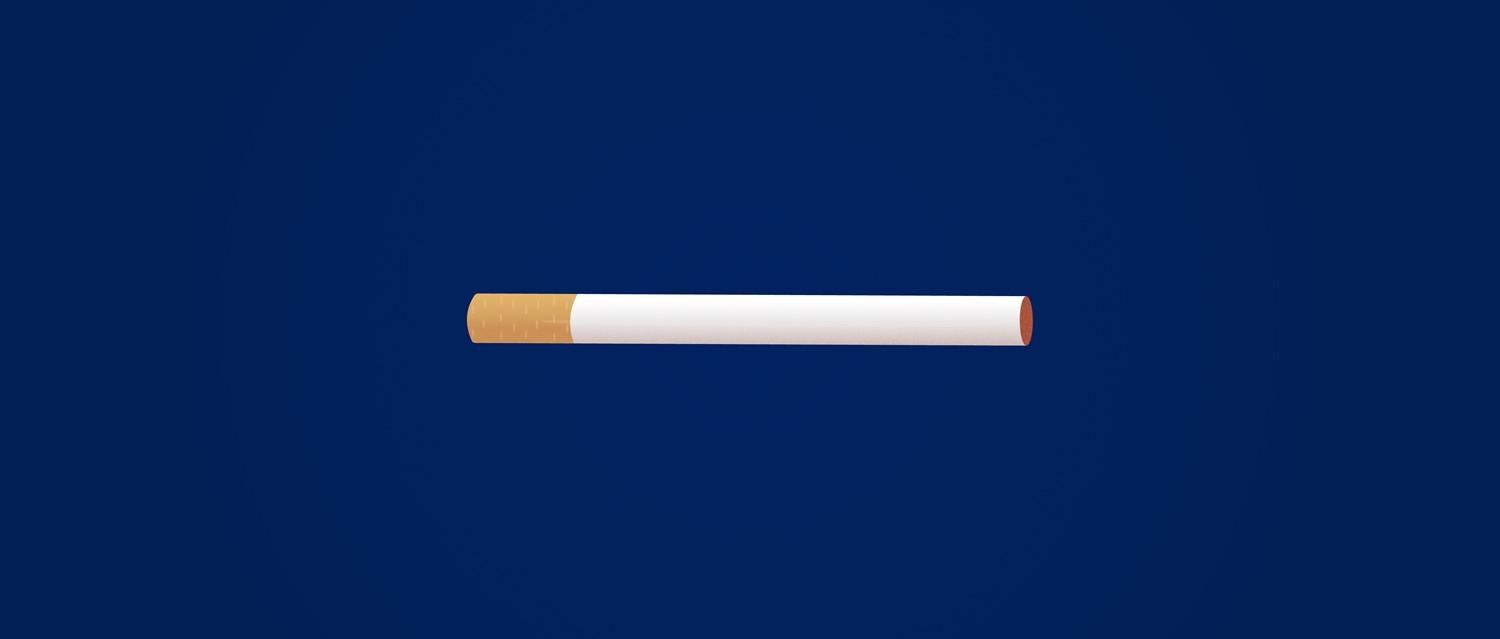
How to quit smoking during pregnancy
Peer reviewed by Dr Krishna Vakharia, MRCGPLast updated by Lydia SmithLast updated 5 Oct 2023
Meets Patient’s editorial guidelines
- DownloadDownload
- Share
- Language
- Discussion
Smoking in pregnancy carries very serious health risks for your baby. Although quitting can be a challenging process, stopping smoking is one of the best things you can do to give your child a healthy start in life. Here are some tips to make quitting a little easier.
In this article:
Smoking rates in the UK have dropped significantly. According to NHS data, the smoking rate for pregnant women at the time of birth fell to 8.8% between 2022 and 2023 - which is the lowest annual rate on record1. However, this means that around 1 in 11 women are still smoking during pregnancy.
Clare Livingstone, professional policy advisor at the Royal College of Midwives, says: "We know that it has been shown to cause really serious damage and increases the risk of stillbirth, prematurity and sudden infant death syndrome, known as cot death. It couldn't really be worse and we want to find a way to avoid the tragic consequences for women and their families."
Each cigarette contains more than 5,000 chemicals, including nicotine, which is highly addictive. Many of the chemicals cause cancer and others are poisonous, including hydrogen cyanide, ammonia and carbon monoxide, which cause harm to a developing baby.
Cigarettes can also restrict the essential oxygen supply to your baby and as a result, their heart has to beat harder every time you smoke.
When you stop smoking, it immediately helps you and your baby and will reduce the risk of complications in pregnancy and birth. You will be more likely to have a healthy pregnancy and birth, and the risk of stillbirth and premature birth - which can cause problems with feeding and breathing - will be reduced. In addition, the baby will be less likely to be born underweight, which can leave them prone to infections.
Secondhand smoke, from a partner or another family member, can also affect the mother and baby, increasing the risk of cot death.
Continue reading below
Why are women still smoking in pregnancy?
"There are pockets of it where the rates of smoking in pregnancy are much higher," says Livingstone. "And it will come as no surprise that these are areas of extremely high deprivation because it is strongly correlated with that and socio-economic factors."
Women living in poorer areas are more likely to smoke than those in more affluent regions, research shows2.
"The reality is that women have many challenges in their lives and some of those can take priority," she adds. "When they have difficult circumstances that they are dealing with, the smoking messages are not getting through. I think it's really important that we don't blame and we don't judge women, but they do need to know the facts."
How to stop smoking
Quitting smoking can be very hard, but for some, getting pregnant is a strong incentive to stop. Anucyia Victor, 39, quit when she found out she was pregnant in 2015.
"I quit because I didn't want to put my unborn child in any sort of danger or pose a risk to their well-being. I had miscarried before - I also quit smoking then but started again after I miscarried - and I wanted to make sure that I was in my best health throughout the pregnancy," she says.
"I was a 12-a-day smoker, the kind of person who had a cigarette first thing in the morning and last thing at night. I had cigarette breaks at work and would light up at the bus stop, walking home or waiting for an appointment."
Victor thought giving up smoking would be really tough, but she found it wasn't too bad. "I gave up as soon as I found out I was pregnant and I haven’t smoked a cigarette since," she says. "I guess I decided to put the health of another person first."
There are many ways to quit smoking if you need help. Livingstone says women can lack confidence in their ability to quit. "They need to know that it is possible and women can do it successfully," she says.
"There are really good services out there that will help them change their behaviour. Whether that is cognitive behavioural therapy and really good support, and/or in combination with nicotine replacement therapy."
Continue reading below
Nicotine replacement therapy
You can use nicotine replacement therapy (NRT) products, such as patches, during pregnancy if it will help you stop smoking. They contain only nicotine and none of the other harmful chemicals in cigarettes, so NRT is a better option than continuing to smoke. It helps you by giving you the nicotine you would have had from a cigarette.
You can be prescribed NRT during pregnancy by an NHS stop smoking adviser. You can also buy it over the counter without a prescription from a pharmacy, and it is available as patches, gum, inhaler, nasal spray, mouth spray, oral strips, lozenges or microtabs. Before using any of these products, speak with your midwife, GP, a pharmacist or a stop smoking adviser.
However, it is not recommended that you take stop smoking tablets such as Champix or Zyban during pregnancy. Pregnant women are advised to avoid liquorice-flavoured nicotine products too.
Are e-cigarettes safe in pregnancy?
E-cigarettes allow you to inhale nicotine through a vapour rather than smoke, and they don't produce tar and carbon monoxide. However, e-cigarettes contain some of the potentially harmful chemicals found in cigarette smoke.
It's important to remember that e-cigarettes are relatively new and there are still some things we don't know. Livingstone adds that we can't be confident that they are risk-free.
Vicky Salt, policy manager at Action on Smoking and Health (ASH), adds: "E-cigarettes are now the most popular aid to quitting smoking in England. Advice from the Smoking in Pregnancy Challenge Group - including the Royal College of Midwives and Royal College of Obstetricians and Gynaecologists - is that these products are far less harmful for pregnant women and babies than continuing to smoke and any woman choosing to use one to quit or stay smoke-free should be supported to do so."
Continue reading below
NHS services
NHS Stop Smoking Services can provide behavioural support and access to nicotine replacement therapy or medications to help you quit. The service can offer one-to-one or group sessions with trained advisers and may even have a stop smoking in pregnancy specialist. To find your nearest NHS Stop Smoking service, speak to your midwife, a health visitor, a practice nurse, a pharmacist or your doctor.
The NHS Smokefree helpline on 0300 123 1044 offers free help, support and advice on stopping smoking and can give you details of local support services. "Stop smoking services are offered on an opt-out basis, so when women are pregnant they will be offered those support services," Livingstone says.
"There are specialist midwives who provide the stop smoking services in combination with their maternity care, and that is really joined up and good continuity for these women because part of it is about building up a trusting relationship with these women and understanding what their issues are."
Women are also screened in pregnancy for carbon monoxide, Livingstone explains. "So at their appointment, they will be asked to blow into something that looks a bit like a breathalyser. It will show if you have been smoking yourself, but it will also show the effects of secondhand smoke.
"It also gives a bit of an incentive as well. If they do stop smoking they can see the reading isn't there."
Lifestyle changes
Other lifestyle changes can help reduce cravings too. You may associate certain events or times of the day with smoking, such as walking to work, so it can help to do different things at these times. Exercise can also help reduce nicotine cravings.
It also helps to be prepared to want to smoke at special events, such as holidays, but try to avoid the urge to smoke - remember the craving will pass.
Get support from family
It's far easier to quit smoking if other people around you aren't smoking too. It’s also important to avoid secondhand smoke, which can be just as harmful to a baby.
"If there are other members of the family smoking, everyone needs to stop and quit together. It’s very difficult for one person to give up if the rest of the family are smoking," Livingstone says. "Pregnancy is a window of opportunity for the whole family to make changes."
Further reading
Patient picks for Smoking and vaping

Healthy living
E-cigarettes could be prescribed on the NHS in world first
As part of the government's ambition to make England smoke-free by 2030, we could become the first country in the world to prescribe medicinally licensed e-cigarettes.
by Emily Jane Bashforth

Healthy living
How to resist the toughest cigarette cravings
Nicotine cravings are triggered by a variety of physical and psychological factors. Knowing what these are, when they are likely to occur and how to distract yourself can go a long way towards helping smokers quit for good. We ask a GP for their advice.
by Julian Turner
Continue reading below
Article history
The information on this page is peer reviewed by qualified clinicians.
Next review due: 5 Oct 2026
5 Oct 2023 | Latest version
24 Jul 2019 | Originally published
Authored by:
Lydia Smith

Ask, share, connect.
Browse discussions, ask questions, and share experiences across hundreds of health topics.

Feeling unwell?
Assess your symptoms online for free
Sign up to the Patient newsletter
Your weekly dose of clear, trustworthy health advice - written to help you feel informed, confident and in control.
By subscribing you accept our Privacy Policy. You can unsubscribe at any time. We never sell your data.